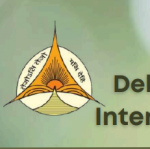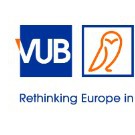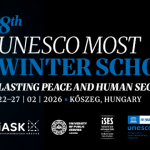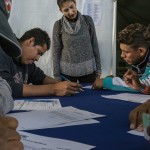ICYMI: Selecting Only the Best and Brightest? An Assessment of Migration Policy Selectivity and its Effectiveness

On 30 October, UNU-CRIS hosted a virtual workshop presenting an upcoming paper written by Professors Glenn Rayp, Ilse Ruyssen and Samuel Standaert. The paper examines migration policy selectivity, introducing a new set of comprehensive and cross-country indicators which will provide a more in-depth analysis of selectivity in migration policy and highlight its multidimensional nature.
Prof. Dr. Ruyssen began by presenting the upcoming paper, explaining the motivations behind it, the focus on selectivity rather than restrictiveness and the difficulties that have normally prevented researchers form formulating a comprehensive economic analysis of the characteristics, drivers and impact of migration policy. Indeed, when exploring the related existing literature, there is a lack of comparable quantitative indicators on migration policy.
The paper, Prof. Dr. Ruyssen stated, will contribute to filling this gap by constructing broader migration policy indicators, capturing selectivity in terms of skills, economic resources and nationality, thereby characterizing the multidimensional nature of selectivity in migration policy for 42 countries between 1990 and 2014 and analysing how selectivity has shaped the scale and structure of migration flows.
Afterwards, Prof. Dr. Standaert more precisely defined the notions of selectivity and restrictiveness, the data sources and the methodology employed in the paper. He explored how the authors went about their goal of comparing measures of indicators over time, at times re-coding their data in order to make it comparable over country and time. He then outlined how they aggregated this information to obtain summary indicators. Their analysis showcases the characteristics of migration policy selectivity in the 45 selected countries and their correlation highlights that looking at different dimensions of migration policy selectivity is relevant to provide a more complete picture.
Finally, Prof. Dr. Ruyssen took back the floor to discuss the results. The selectivity of migration policy is shown to strongly increase over time, with more developed countries selecting migrants more on the basis on nationality and an overall relevance of the migrants’ economic resources for all the countries concerned. The authors were also able to estimate the impact of migration policy selectivity on the scale and structure of migration flows. They found that selectivity does have a significant impact on migration flows, primarily when it is based on nationality or economic resources.
The event was wrapped up with a Q&A session in which the participants and the authors discussed recurring issues in migration studies, such as the difficulty of accounting for undocumented migrants, and shared insights and suggestions which would undoubtedly prove interesting and useful to explore in this study or in studies to come.




